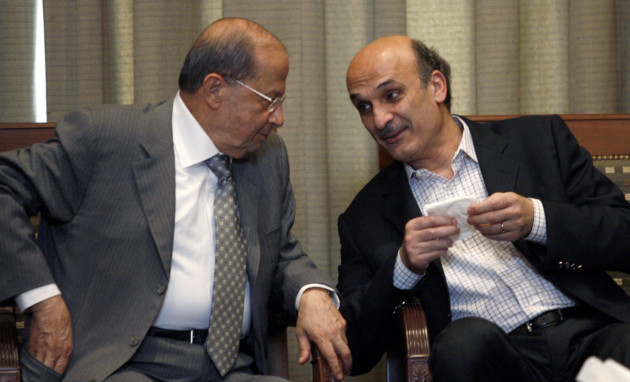
Beirut: Nothing illustrates better the paralysis of Lebanese society than its inability to elect a head of state.
After the April 23, 2014 parliamentary convocation to elect a successor to Michel Sulaiman — who formally ended his six-year term in office on May 24, 2014 — Parliament Speaker Nabih Berri scheduled 41 additional sessions, all of which failed to establish quorums because pro-Syrian parties such as Hezbollah, the Free Patriotic Movement (FPM), and allied deputies have boycotted the sessions.
The 43rd is scheduled for August 8, although both Hezbollah and the FPM insist on a prior agreement on the candidacy of FPM founder General Michel Aoun and rejected a democratic contest against any other candidate.
Even if the exercise smacked of undemocratic behaviour, it nevertheless was a perfect illustration of the organised chaos that intended to weaken and perhaps even destroy yet another national institution.
Divided between two major alliances, the pro-Syrian March 8 and anti-Syrian March 14 groups that pretended to know what the national interest was, both engaged in ironic gamesmanship that spoke eloquently about the top institution even if no one compromised to empower it.
In the aftermath of the 1989 Taif Accords, which formally ended the 15-year-long civil war that cost 150,000 lives and permanently crippled society, Lebanon’s presidential system was emended.
It henceforth transferred some of the more important governance powers from the head of state to the Cabinet, changed parliamentary representation to a 50:50 Christian/Muslim ratio (from the 6:5 ratio in favour of Christians), and otherwise introduced various security appointments that favoured Shiites.
While Taif respected the 1943 National Pact, it intended to gradually renovate most institutions and, above all else, to eliminate confessionalism.
That did not occur, at least not yet, although the key feature in Taif — to dismantle all militias — suffered a major drawback when Hezbollah managed to exempt itself on account of its self-appointed role as defender of Lebanon against Israel.
Lebanese bought into Hezbollah’s exemption to disarm, especially during the 2006 war between Israel and the militant group.
But when the party turned its weapons onto their fellow Lebanese two years later, attitudes swiftly changed.
In 2012, public opinion hardened even further when Hezbollah announced it would fight in Syria to help bolster the regime of Bashar Al Assad.
Above all else, Hezbollah, with the FPM’s Christian cover, insisted on an exclusive right to redraw the country’s political map, standing by Michel Aoun as the only acceptable presidential candidate while a clever “tryptic of the people-army-resistance” intended to gain popularity.
That could no longer be sustained in the eyes of a majority of Lebanese though Hezbollah tenors sang the tune ad-nauseam.
In the event, Hezbollah and Aoun demanded a guaranteed electoral victory that reduced the presidency into a mundane and largely irrelevant institution, even if Future Movement leader and former Prime Minister Sa‘ad Hariri’s late December 2015 initiative to break the stalemate came to naught.
Hariri nominated Marada Movement chief Sulaiman Franjieh for the presidency, though his proposal was met with disbelief by his first candidate for the office — the Lebanese Forces leader Samir Geagea — who backed Aoun in January 2016 after he concluded that such a step was the only way to test Hezbollah’s sincerity to select Aoun.
Like the presidency, the army came under duress as well not only because the Hezbollah militia formed a security state within the state but also because its estimated 100,000 troops reflected the country’s sectarian woes that, left to fester, posed an undeniable unity challenge.
The Hezbollah threat has helped rally Lebanese behind the military which many could argue is the least politicised entity in the country.
Currently the army’s composition stands at 71 per cent Muslim — divided between Sunnis (35 per cent), Shiites (27 per cent) and Druzes (9 per cent) — and 29 per cent Christians.
Critics of the military, mostly fearful elites, are against a strong military and are working to keep it deliberately weak.
While Syria also wants a weak Lebanese army, it remains one of the country’s last bulwarks against chaos.
— This essay, the second of four, examines Lebanon’s challenges post-Taif accords











